11 Networking Predictions for 2011

Crystal Ball Time, Again
With all that happened in the networking and infrastructure space in 2010 -- from supply chain crises to major M&A deals, software shifts and cloud, cloud, cloud -- what will 2011 hold? Plenty, we think.
With the economy slowly bouncing back, many of the space's big vendors having made moves with long-reaching consequences and a host of fresh, upstart companies ready to challenge the incumbent players, it's going to be another action-packed, drawn-out, race-to-the-finish style year for this section of the channel.

Tear Down That Wall
We've talked a lot about IT-telco convergence: that is, the movement of IT solution providers and telecom-oriented service providers into each other's previously well-defined and previously separate territory. In fact, we've been talking about it for years.
But look at what's happening now: IT solution providers who made their bones selling PBXes now feel comfortable enough with managed and hosted services that they're in effect service providers, themselves: confident in the world of SLAs and providing the connectivity, as well as the gear. Or, on the flipside, those telecom agents who have begun adding application support or maybe hosted e-mail -- or even selling hardware, too. (Just look, for example, at Telecom Brokerage Inc. (TBI), a master agency that on Jan. 1, 2011, will become a full-fledged, nationwide Adtran VAR.) The walls are coming down, and in 2011, more longtime players on each side of it will decide to climb on over, seeing new opportunities and revenue streams.

More Channel Consolidation
Coming out of the downturn of 2009, many solution providers hung "for sale" signs outside their windows -- and if you were in the market, hopefully with some extra cash, the getting was good. In the Cisco channel, for example, a number of Cisco Gold partners bought fellow solution providers, and in the increasingly fractious post-Avaya-Nortel integration landscape, VARs are merging and acquiring left and right.
Carousel Industries is one of those solution providers; it made a number of acquisitions in 2010 and expects to keep up the pace next year. Why? As James Marsh, Carousel's senior vice president, put it to CRN recently: "A lot of companies can be had, I have to say it, inexpensively."
Look for more networking-centric solution providers to get bought or go belly-up in 2011.

Another Cisco M&A Blockbuster
Cisco's acquisitions streak has gone more or less unabated for two decades. The company makes acquisitions like you brush your teeth. So to predict a continued M&A emphasis for the networking titan is a pretty easy mark.
We're betting that hungry, hungry Cisco, with a healthy pile of cash and designs on more than 30 market adjacencies, will make another game-changing grab in 2011, and it'll be on the order of a Tandberg (top or disruptive player in a space with a well-defined channel, in other words) rather than a Moto Group (niche play without much channel ripple effect).
Who that'll be is anybody's guess, however. Remember when "the smart money" (ahem) was on Skype earlier this year?
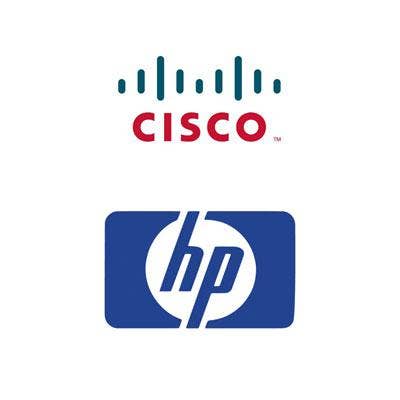
Cisco Heats Up Against HP Again
Now wait just a second; we didn't say that the nasty rivalry between two of the world's most visible technology companies quieted this year. In fact, where HP was concerned, it got even more bloodthirsty, from HPs anti-Cisco baiting at its April partner conference to the just-announced "Catalyst for Change" trade-up promotion for tearing out Cisco switches in favor of HP gear.
But with notable exception -- such as Cisco's public booting of HP from its partner program -- much of the sabre-rattling was on the HP side in 2010, and Cisco's maintained that it's focused on market transitions, not competition.
We know better, of course: Cisco is a marketing tyrannosaurus, and it's also a cobra, lying in wait. CRN has heard from multiple Cisco Gold partners in recent months that the company is ready to take back some of the headlines that as of late, have been going HP Networking's way...
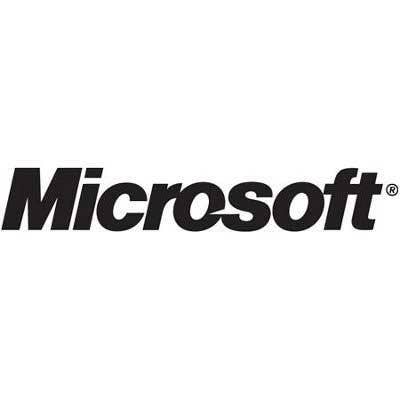
Microsoft's Got A UC Winner
Microsoft Lync -- formerly known as Office Communications Server (OCS) -- is one of the big question marks in the UC space. On the one hand, it's tricked out with plenty of bells and whistles, furthers Microsoft's already impressive UC ambitions, is scaring the heck out of its entrenched rivals on the space thanks to the breadth and depth of its partnerships, and furthers the notion that it's software that's going to win the UC battles to come. On the other, carpers would tell you that it's taken Microsoft ages to get the messaging right and that they're still not taken seriously as a UC contender in many quarters because of the perception that they treat UC as just another quaint piece of the Microsoft software stack.
Maybe its reputation as a vendor you don't bet against isn't exactly as airtight as it once was, but for a vendor that gets the channel like few others -- and is ready to help its software partner legions make the leap into UC -- channel prowess could mean big, big things for Lync dominance.
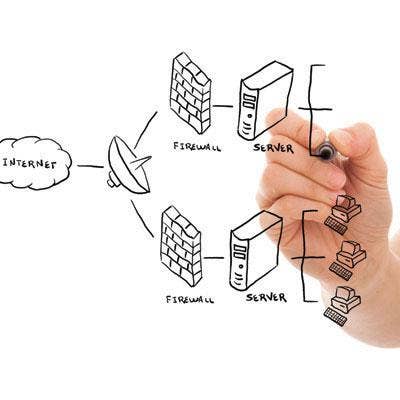
The WAN-Op Wind-Up
The WAN optimization/WAN acceleration space is a curious animal: still considered a niche specialty by some, already overcrowded for others, but, now that cloud computing is the end-all, be-all choice for many of tomorrow's data center deployments, a wholly necessary investment. Riverbed Technology rules the roost here, and indeed, the company's showed no signs of slowing down, having recently made acquisitions and expanded into new markets like cloud storage, while pushing the idea that the WAN-op space has plenty of greenfield territory.
But Riverbed's major competitors -- Cisco, Blue Coat and Juniper -- as well as a host of emerging players like Certeon and Talari Networks, have no intention of being crowded out, especially now that many data center customers and data center solution providers who might have ignored WAN op technologies before are definitely ready for them now. Is WAN optimizaton/acceleration about to become as cutthroat a space as wireless or other, hotly contested networking sectors?
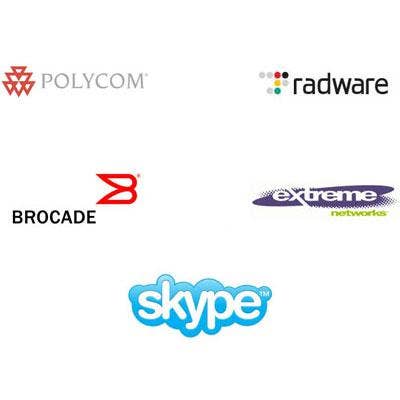
One Of These Companies Will Be Acquired
M&A predictions are more for fun than anything else, but here we go. They've all been mentioned as acquisition targets in the past year -- some on a near-weekly basis -- so this might be shooting fish in a barrel. But we're hard pressed to believe the industry enters 2012 without at least one of these companies taken off the table:
Extreme Networks: Recovering from some tough times, but the channel loves their stuff.
Brocade: Dell, IBM and Juniper have all been mentioned in this year's crop of potential buyers.
Polycom: The last standalone video conferencing player of scale has sure done a nice job rebuilding its channel program. But can it really muster the firepower to take on Cisco-Tandberg by itself?
Skype: Acquired before that IPO happens? It's already been plenty rumored this year, and no question both a hot technology and designs on business adoption.
Radware: First it was HP that was rumored to be interested. Then IBM. More recently, it has been Check Point, and Cisco and Juniper.
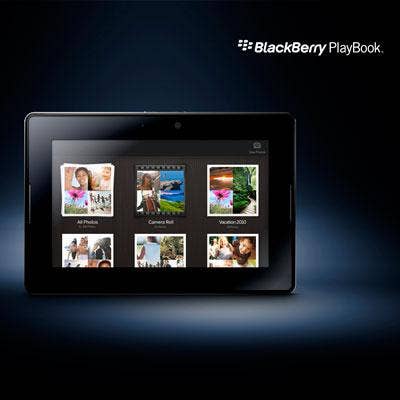
RIM Gets Its Groove Back
RIM was the Rodney Dangerfield of the 2010 smartphone landscape: it couldn't get no respect. Which wasn't surprising, considering Apple and the allies of Google Android chewed into its market share and bested it, left and right, with better, slicker, smarter devices. But a funny thing happened while many in the industry were writing RIM's obituary: the company posted stunning 45 percent revenue growth in its most recent earnings, proving RIM still has plenty of bite behind its BlackBerry bark. And with the RIM PlayBook on the way to challenge iPad, there may be tablet hope for RIM yet.
It may be RIM's enterprise strategy, however, that proves its most powerful weapon next year. Sure, Apple and Android are making inroads into the enterprise. But RIM? RIM has an established -- and quite voluminous -- solution provider channel. If it's smart, it'll make sure that the channel pushes its BlackBerry, PlayBook and other mobile device agendas as hard as possible.

More Reason To Hang 10 (GbE)
If 2010 was the year that Ethernet switching bounced back following a rough-n-tumble 2009, 2011 may well be the year that 10 GbE switching busts out. Sure, it's been around for some time and wider enterprise adoption has been discussed for almost as long, but the recent numbers don't lie: Ethernet switching itself is expected to slow back down in 2011, but 10 GbE is not. 10 GbE, in fact, drove record Ethernet switch sales in the third quarter of 2010, according to Dell'Oro Group.
"While we expect overall market growth to slow considerably in 2011, we expect data center products will continue to expand in 2011, led by 10 Gigabit Ethernet as it continues to grow not only as a server connectivity technology, but also as an aggregation technology within the data center," said Alan Weckel, director of Ethernet swtich market research at Dell'Oro Group.

End Of The All-You-Can Eat Data Buffet?
3G wireless networks are already under terrible strain, and if many of the analyst and vendor reports on the growth of mobile traffic -- especially video-based traffic -- are even conservatively accurate as smartphone adoption soars, those 3G networks will be that much more taxed. So what happens next? Tiered data pricing -- much rumored, and often hinted at -- lest the deployment of Long Term Evolution (LTE) and other 4G networks happens faster (a lot faster) than anticipated.
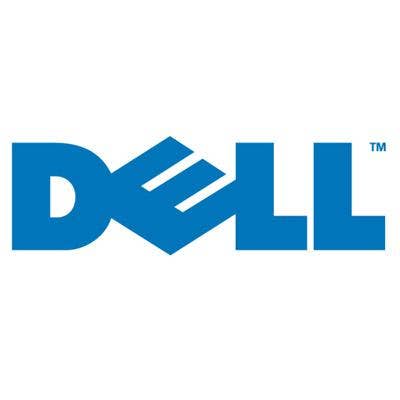
Dell Arrives
Dell's enterprise networking ambitions have never been quite clear, but in the past year, especially, it's made a number of very curious moves. Dell added an OEM relationship with Aruba to supplement its existing OEM deals with Brocade and Juniper, for example, and it also added industry veteran Dario Zamarian as vice president and general manager of its networking division -- the first time Dell's brought that role out from inside its bigger storage and infrastructure group.
Will Dell continue to OEM versus acquire a networking player? Likely not, especially with the company in such an acquisitive mood as of late. Look for Dell's networking profile to grow exponentially next year.